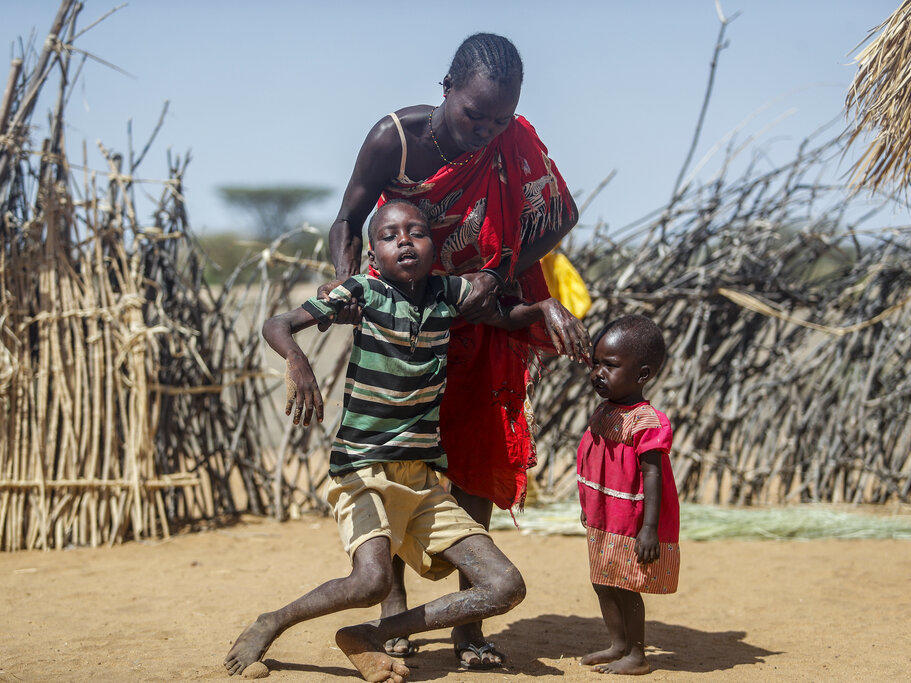Section Branding
Header Content
Drought and soaring food prices from Ukraine war leave millions in Africa starving
Primary Content
More than 23 million people are experiencing extreme hunger in Ethiopia, Somalia and Kenya, according to a new report by Oxfam and Save the Children. That's up from over 10 million last year.
The region's worst drought in 40 years is being exacerbated by conflict and the pandemic. And the war in Ukraine has sent food prices soaring to record levels.
It's a crisis the world clearly could see coming, the report notes, with the drought becoming apparent as early as the summer of 2020 and the governments of Somalia and Kenya declaring emergencies this past fall. In February, the United Nations reported that hundreds of thousands children could die in Somalia by the end of the summer.
Russia's February invasion of Ukraine disrupted shipments from the countries, which the report notes supply 90% of the wheat in East Africa. That sent prices for the staple up 20%. Prices for cooking oil, much of which also comes from Ukraine and Russia, also doubled.
The aid groups blame a political failure
In a statement, the international aid groups say the world has the food and the money to stop hundreds of thousands of people from dying of hunger, but it lacks "the political courage."
According to the report, when Russia launched a war against Ukraine, the international community raised $16 billion in one month to help. So far, the U.N. has collected just $93 million to help with the hunger crisis in East Africa.
"Starvation is a political failure," the report's summary says.
Ethiopia, Somalia and Kenya are just three of a long list of low-income countries at risk, with the Ukraine war amplifying existing strains caused by two years of pandemic. And with Russia also being one of the world's leading fertilizer exporters, the crises could deepen and stretch on for some time.
"The supply chain network is so complicated that if somebody sneezes in one place, somebody else gets the cold in another place," the World Food Programme's Arif Husain told NPR's Nurith Aizenman earlier this year.
Copyright 2022 NPR. To see more, visit https://www.npr.org.

